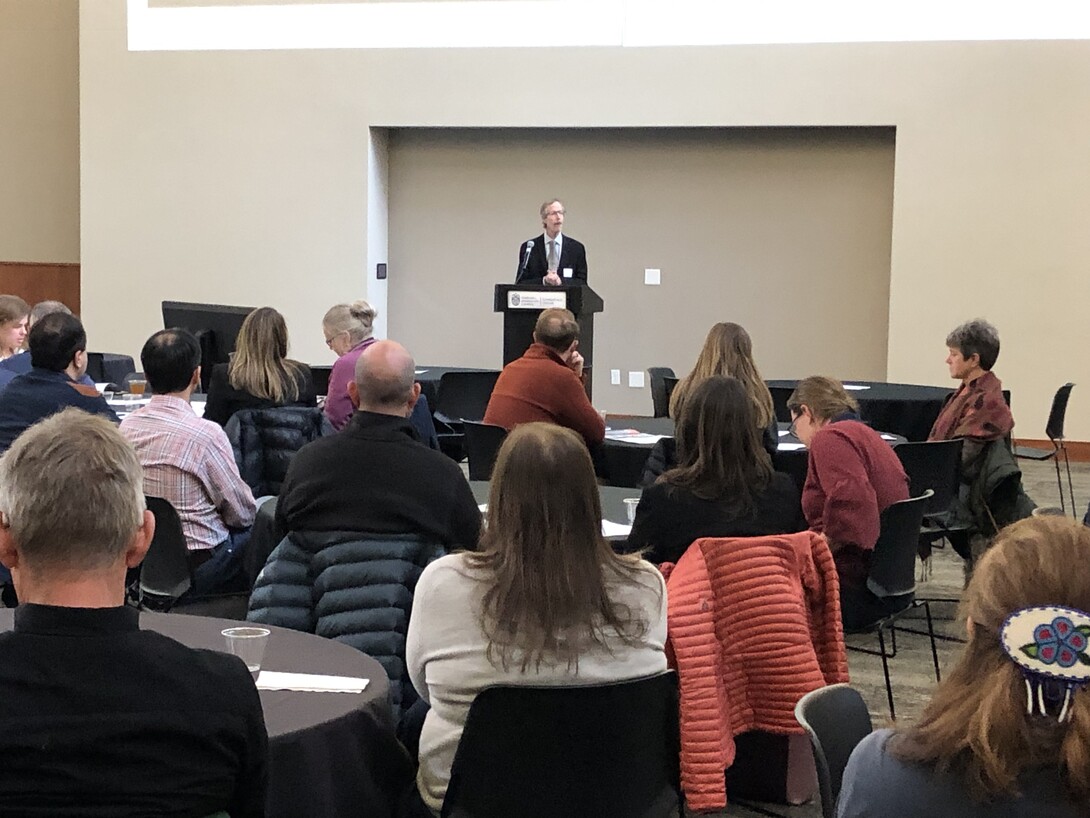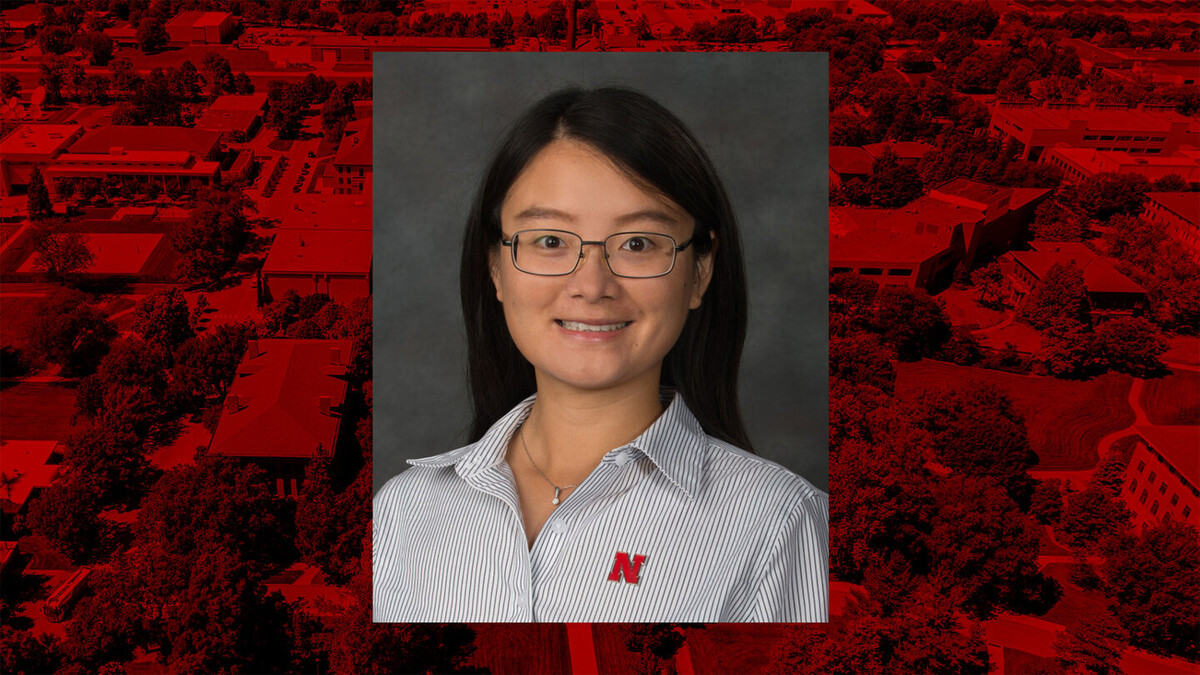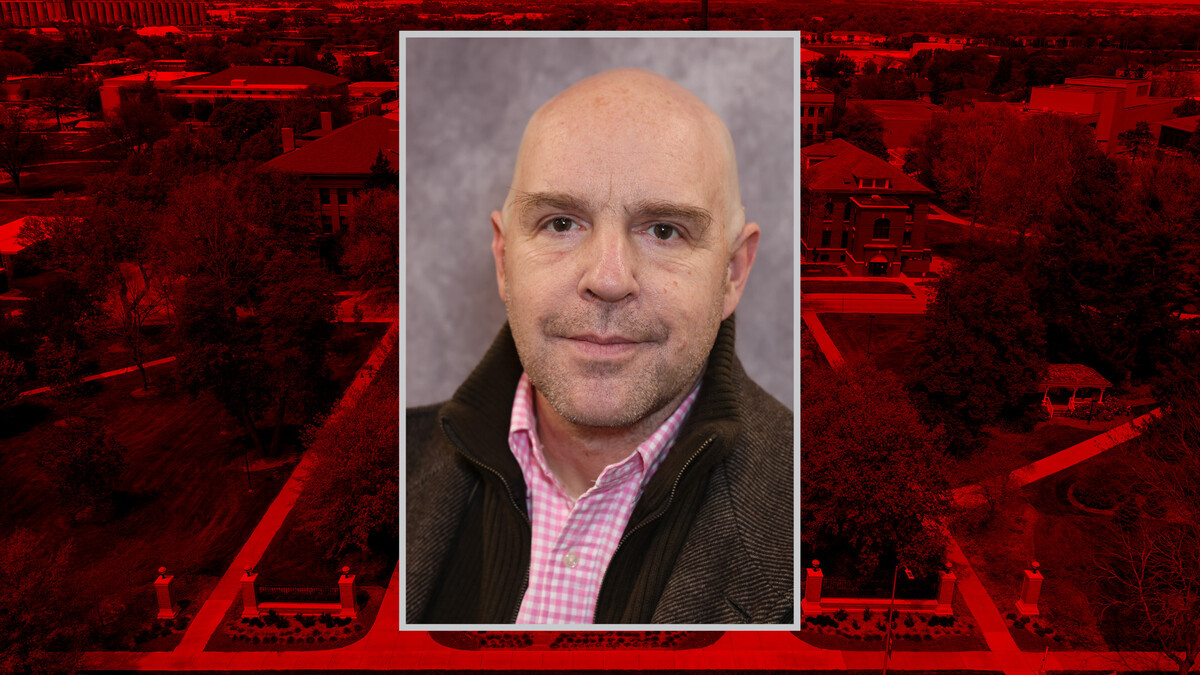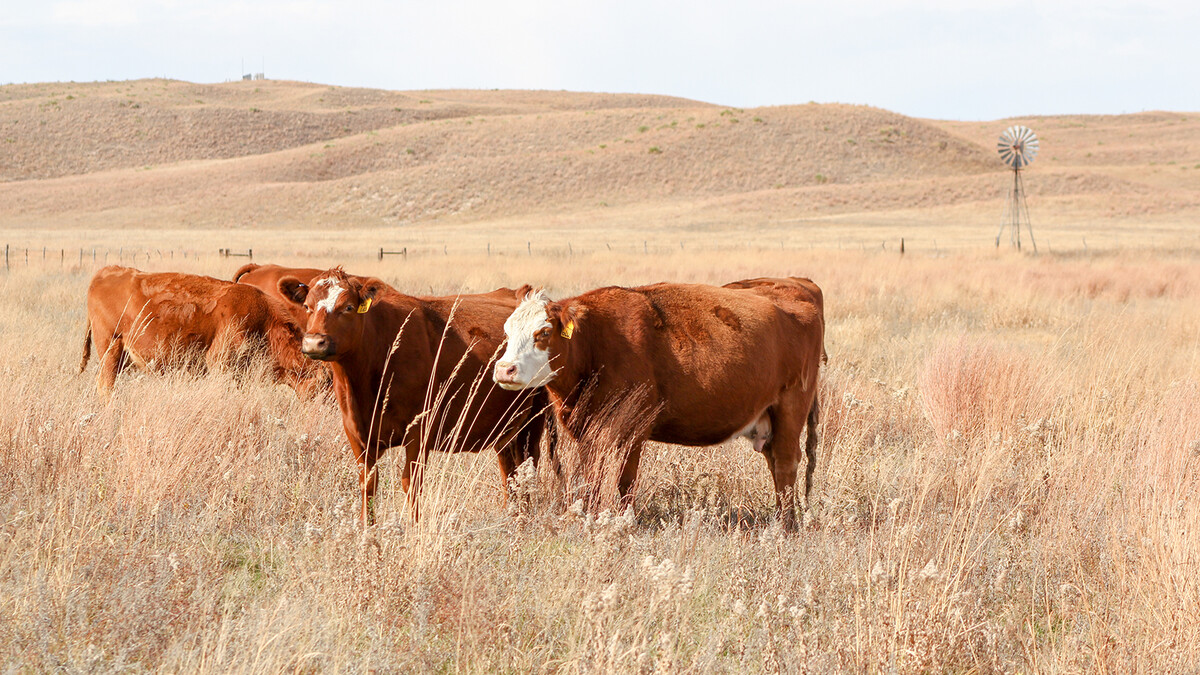
Lincoln, Neb. —The Center for Resilience in Agricultural Working Landscapes withstood pandemic postponements and celebrated its grand opening through an agricultural forum at the Nebraska Innovation Campus on November 17.
“Although the center actually opened in April 2021, our rollout was probably the worst time in the last 50 years to try to roll out something, so this forum was just to have a more formal opening of CRAWL so that people know we are out there,” Craig Allen, center director, said.
The Innovative Approaches to Enhancing Agricultural Resilience forum started with a rice bowl buffet at noon, followed by professor presentations and breakout discussion groups until 4:30 p.m. and then informal networking at The Mill Coffee & Bistro nearby. About 55 people attended.
Allen said the forum met its main purposes of introducing the public to the center, offering people the chance to interact and network and getting input on research priorities and concerns.
Most of the attendees came from the university, but nongovernmental agencies and organizations also took part.
Chris Helzer, director of science at The Nature Conservancy, said he came to the forum mainly to learn more about everything the center is involved with.
“I was familiar with some of the work, but not the full breadth of it,” he said. “It was great to catch up on the rest.”
Gwendwr Meredith and Daniel Uden, School of Natural Resources professors, spoke about resilience work on the Barta Brothers Ranch and in the Nebraska-Montana EPSCoR project. Tala Awada, an associate dean in the Agricultural Research Division, spoke about the Network for Integrated Agricultural Resilience Research planned to span North America. Elizabeth VanWormer, One Health coordinator, spoke about that program, and Andrew Little, School of Natural Resources professor, spoke about precision conservation. Nathan Mueller, an extension educator in Wilber, spoke about the Weather-Ready Farms project.
“I thought the forum did a nice job of showcasing some of the many ways ecological resilience is important to both our production agriculture directly and the ecological systems that support it,” Helzer said. “It highlighted some of what we know and a lot that we still need to learn. It’s exciting to see the momentum behind the research and outreach work on this topic.”
Luis Marcos, co-executive director of Comunidad Maya Pixan Ixim, an organization of Mayan immigrants from Guatemala, said the forum allowed his organization to be introduced to the university community and get to know the work of the Institute of Agriculture and Natural Resources.
“We are really interested in implementing an agroforestry system with animal integration with regenerative agriculture,” he said. “We know that UNL has an interdisciplinary team that we could potentially partner with, and that's what I kind of expected to do, and I think that's what we accomplished.”
Allen and center workers created a mailing list from the forum and plan to synthesize comments made in the discussion groups and post core ideas to the CRAWL website. He said they planned to expand the mailing list with others interested in agricultural resilience and would review all feedback before planning another forum.
Marcos said the forum was more of an internal conversation of the university, without many indigenous people’s perspectives, but he saw the university as interested in including a broader community.
“The message that we take is that there is this UNL systems reaching out to community members and to Nebraskans, and so, we definitely want to take that message to the wider community that there is room for collaborations and voices and to be open to this invitation and to contribute to these conversations,” Marcos said.
-- Ronica Stromberg, NRT and EPSCoR Program Coordinator







